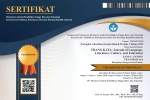Moroccan EFL Students' and Teachers' Readiness for Multicultural Education
DOI:
https://doi.org/10.54923/jllce.v5i2.131Keywords:
EFL education, multicultural education, multicultural readiness, teacher preparationAbstract
This study bridges the gap in the existing literature concerning implementing multicultural education. Examining both students' and teachers' perspectives offers insights into the preparedness of educational stakeholders to embrace multicultural frameworks in EFL settings. The primary aim of this study is to assess the level of readiness for multicultural education among Moroccan EFL students and teachers, and to identify key opportunities and challenges associated with its implementation. A mixed-methods research design was adopted. Quantitative data were collected and analyzed using descriptive statistics through two structured questionnaires administered to 100 EFL students and 70 EFL teachers. Qualitative data was gathered via semi-structured interviews and analyzed thematically to gain deeper insight into teachers' views and experiences in multicultural education. The results were interpreted in a convergent manner to ensure a comprehensive understanding of the research problem. The findings indicated that participants generally had positive perceptions of multicultural education. However, many challenges potentially impede the effective integration of multicultural education within the Moroccan EFL context. Hence, the study presents a set of practical recommendations designed to improve stakeholders' readiness and facilitate their adoption of multicultural practices. This study carries significant implications for students, educators, curriculum developers, and policymakers, as it also opens avenues for future research on multicultural education and its implementation.
Downloads
References
Alismail, H. A. (2016). Multicultural Education: Teachers' Perceptions and Preparation. Journal of Education and Practice, 7(11), 139-146.
Banks, J. A., & Banks, C. A. M. (Eds.). (2010). Multicultural education: Issues and perspectives. John Wiley & Sons.
Elemam, S. M., & Saide, A. (2023). A critical perspective on education across cultural differences. Research in Education and Rehabilitation, 6(2), 166-174.
Ferrell, K. (2022). A Literature Review of Multicultural Education Practices to Support Marginalized Communities. Curriculum and Instruction Undergraduate Honors. https://scholarworks.uark.e du/cieduht/31.
Karataş, K., & Oral, B. (2017). Cultural responsive teaching readiness scale validity and reliability study. Eğitim Bilimleri Araştırmaları Dergisi, 7(2), 245-256.
Krulj, J., Lazović, N., Marković, E., & Vidosavljević, S. (2024). Multicultural Values And Multicultural Education In Transition Countries. Knowledge-International Journal, 63(2), 169-173.
Lee, M. (2024). Intercultural understanding: implications for multicultural education. Multicultural Education Review, 16(2), 89-93.
Liu, Q., Çolak, F. Z., & Agirdag, O. (2020). Characteristics, issues, and future directions in Chinese multicultural education: A review of selected research 2000–2018. Asia Pacific Education Review, 21(2), 279-294.
Moore, A. L., Giles, R. M., & Vitulli, P. (2021). Prepared to respond? Investigating preservice teachers’ perceptions of their readiness for culturally responsive teaching. International Journal for the Scholarship of Teaching and Learning, 15(1), 10.
Nash, K. T., Glover, C. P., & Polson, B. (Eds.). (2020). Toward culturally sustaining teaching: Early childhood educators honor children with practices for equity and change. Routledge.
Naz, F. L., Afzal, A., & Khan, M. H. N. (2023). Challenges and benefits of multicultural education for promoting equality in diverse classrooms. Journal of social sciences review, 3(2), 511-522.
Obasare, R. (2022). The development and initial validation of the Multicultural Readiness Scale (Doctoral dissertation).
Piper, R. E., Sharp, L. A., & Raymond, R. D. (2019). Diversity in Literacy Education: How Are Literacy Teacher Educators Preparing Teacher Candidates?. Georgia Journal of Literacy, 42(1), 6-17.
Sherpa, D. (2020). Diversity Management in classroom: Exploration of teacher's role. Patan Pragya, 7(1), 279-288.
Soetan, T. O., & Nguyen, D. H. K. (2023). Addressing gender disparity through international higher education: use of contextually appropriate global policy framework. Journal of Underrepresented & Minority Progress, 7(2).
Tonbuloglu, B., Aslan, D., & Aydın, H. (2016). Teachers’ awareness of multicultural education and diversity in school settings. Eurasian Journal of Educational Research, 16(64).
Wang, G., & Gao, F. (2023). The school-based multicultural education curriculum in China: a case study of two Yugur middle schools. Journal of Multilingual and Multicultural Development, 1-13.
Yılmaz, K., & Temizkan, V. (2022). The effects of educational service quality and socio-cultural adaptation difficulties on international students’ higher education satisfaction. Sage Open, 12(1), 21582440221078316.
Yin, R. K. (2009). Case study research: Design and methods (Vol. 5). sage.
Yoon, J., & Martin, L. A. (2019). Infusing culturally responsive science curriculum into early childhood teacher preparation. Research in Science Education, 49, 697-710.
Downloads
Published
How to Cite
Issue
Section
License
Copyright (c) 2025 Wiame El Houari, Hicham Laabidi

This work is licensed under a Creative Commons Attribution-ShareAlike 4.0 International License.





